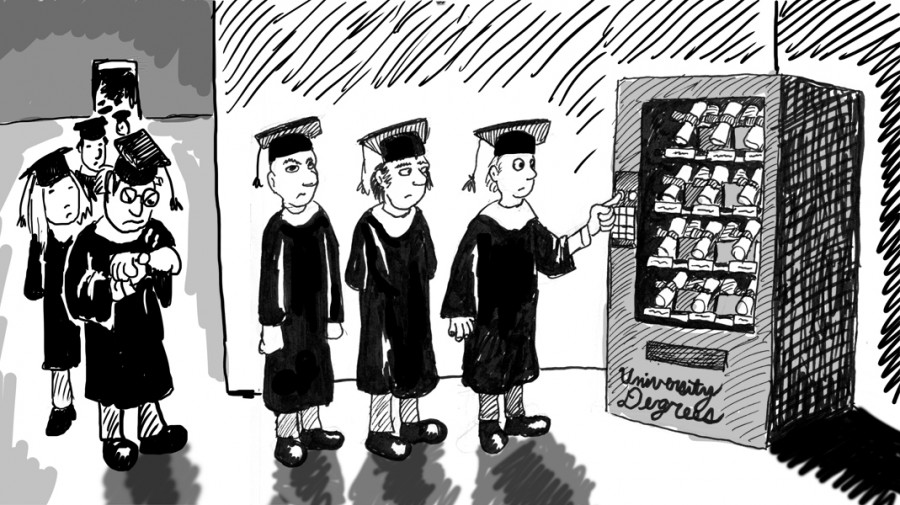Editorial
Engage in Your Education
How passive are we about our education?
Some of us are graduating this year, and lately many of our peers in the same position have been complaining about the state of our university. Some are dissatisfied with the level of engagement we see from our peers in class, the passiveness of some profs, the amount of money we’ve put into getting this degree, maybe not having learned as much as we feel we could have—the list goes on.
Not pursuing a post-secondary education is almost unheard of today, as university has become a natural step after graduating high school. Without a degree, we are presumably left with few career options. Graduating during The Great Recession means that many students are covering their walls with degrees that they otherwise would not have paid for. What does this add up to? A lot of time, money and stress. But is it worth it? Are we satisfied with our post-secondary education? Recent student upheavals, strikes and protests say no.
Maybe we have become so complacent and stuck in how things are “supposed to be” that we’ve forgotten that there can, and should, be alternatives to our current system.
As university students at an institution that encourages our engagement in new ideas, where we should be constantly interacting and learning, where we’re taught to ask questions, think critically and generate new opinions and dialogue, how many students are sleepily working their way towards degrees, hoping that a piece of paper will buy them a job?
On top of this, our governance system, on varying levels, is less than inspiring.
While President Frederick Lowy congratulates Concordia for getting through last year’s administrative exodus and (very public) crisis of government, the Chair who was called to resign is still on top and as contemptuous as ever—shutting down students and closing the door to more transparent meetings.
And while Your Concordia ran a campaign last year that gave many faith in their ability to bring radical new ideas and change to the table in terms of how this university is run, they ultimately failed to live up to these ideals… so far. Cool, a swap shop and some fun events, but how about getting students to actively engage in their university community and, ultimately, in their own learning? Their passion was uplifting and gave students hope for a brighter future. Where is it?
All of the tuition talk this year has taught us that our education is worth money—a lot of it. But we’re focusing so much on how much it costs that we might be forgetting to ask whether the money we’re spending now is being returned in knowledge.
Talking about a new project being started by university students and professors this week (the Alternative University Project) got us thinking about how much control we have over our own education.
The label of “student” shouldn’t be something that comes off when we walk across that stage to get our diplomas. We battle with the administration over how much our schooling is worth, but how much are we in control of our learning? How engaged are we with our position as students?
A project that focuses on the world of learning outside of the institution of a university is a beginning. It focuses our attention on why we all work so hard to come to school every day: to learn.
Student is a word that isn’t necessarily clearly defined. We are in a position now where we can question everything—our learning, our administration, our rights—and change what we’re not happy with. Projects like Alternative University are starting the dialogue and we should be looking towards them. Our education needs to be about more than a piece of paper.


_600_832_s.png)

_600_375_90_s_c1.jpg)
_600_375_90_s_c1.jpg)